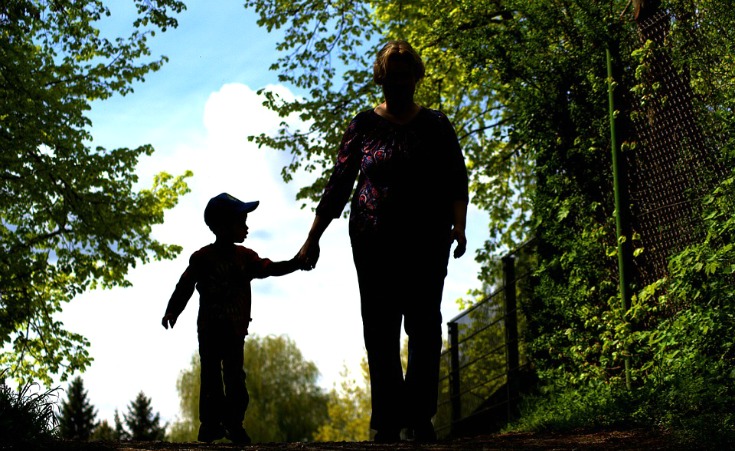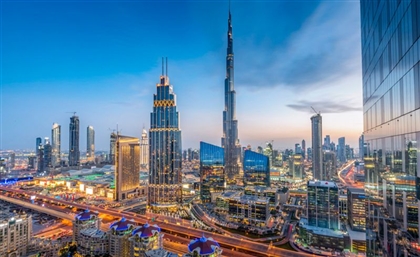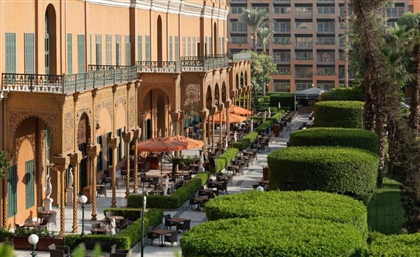Everything You Need To Know About Adoption In Egypt
Shattering the myth that adoption is non-existent in Egypt, Sanabel al-Najjar speaks to two people deeply involved in the issue to find out more.

You’ve just had a fight with your parents. You enter your room, slamming the door as you do, and lie in bed wishing you could just run away or move out. This could have happened when you were 12 or 24; the problem could have been as trivial as cleaning your room or missing your curfew; but, as you pull the covers over your head, wishing that your parents would disappear, you should probably be careful about what you wish for.
Walking down the streets of Cairo, a sense of guilt overcomes me as I witness little children walking around barefoot under the scorching heat, with dirty hair and empty stomachs, smiling as they beg for some money so that they can afford a loaf of bread, which is often actually used to buy drugs for their ‘manager’.
No, this is not Oliver Twist; this is the reality of thousands of children in this country. And as you shoo them away so as not to get your car windows all smudged with their fingerprints, try remembering that this could have been you. Or, worse yet, this could have been your child had you died in a car accident or had a heart attack before saving the money needed for their schooling and livelihood.
While many children are born into impoverished families, many others end up being found in the streets by the police without knowing who either of their parents were. Those children end up in orphanage homes and at times actually get adopted, despite the marginal rate of adoption due to social stigmas and religious considerations.
Hagga Kawthar Rabee – known as 'Omm Al Aytaam, or mother of the orphans – who is a very active member of the groups ‘Magmo3et Ahl Kheir’ and ‘Magmo3et Sayedaat Ain Shams’, talks to me about Egypt's adoption situation and the way the issue is dealt with through her personal experience. Rabee explains that children who end up in orphanages either have no known parents or were left astray on account of dysfunctional families. “When the children arrive at the centres, institutions, and boarding schools provided for caring for them, they are assigned a ‘substitute mother’ responsible for caring for them.” The schedule in such homes is just as normal as in any others, Rabee explains, with fixed meal times and school attendance for instance. The boarding schools and centres are divided according to the age group of the children.
“Each child has a log book in which they record the amounts of money given to them through kafaala (sponsorship) so that, when they leave the home, they will have a means of sustenance,” she adds. Rabee explains that though it is the Department of Social Affairs’ responsibility to provide apartments for those who leave the homes, this is not always the reality. However, married couples, especially those who are unable to have children of their own, opt for adoption from such schools and institutions.
“We just want those children to live the way we do, normally,” says the woman who has taken it upon herself to also help with the marriages of orphaned children and the support of addicts and juvenile criminals. “We organise weddings for the orphans and prepare Ramadan and Eid gifts for them, and help with special needs children and try to make life as normal as could be for them,” she adds.
“Most couples adopt babies from schools and give them the man’s name. However, this only happens after it is proven that the potential parents have sufficient financial means to provide for the child. As you know, many people adopt children so they can exploit them through child labour, so there are regular checkups that last for years to make sure that the new foster parents would be good to the child,” she says, adding that sometimes adoption happens because a couple would have several children of the same sex and sees adoption as a reasonable alternative to having a child of a different sex.
When asked about the legal and religious aspects of the topic, Rabee explains that, in Islamic legal procedures, complete adoption is illegal because of inheritance considerations, where non-biological children are not to be granted part of the inheritance. What happens is that it will be clearly indicated that the child is not an heir, which happens after acquiring the appropriate papers from the Ministry of Health, where they would name the child whatever name they choose (especially when the parents are unknown) while giving the foster father’s name to the child as well.
To find out more accurate information about the legalities of the issue, I spoke to lawyer Adel Ramadan who specialises in adoption cases in Egypt.
Ramadan explains that, originally, under Egyptian law, adoption is strictly forbidden. “And for this reason, the Alternative Family was created; that is, in order to accommodate the needs of the society [children in need of homes] to the Shari’a Law.” Even though the Ministry of Interior ruled against the adopted child acquiring the foster father’s name, the court allowed it under certain conditions, he tells me. “Also, given that inheritance is strictly illegal, children with no known parents would be acknowledged under the Civil Status Law, where an official document about their identity will be issued for public use. However, the child would still be referred to as a ‘foundling’ [or laqeet]," Ramadan explains. This harms the child because, at the end, he or she is referred to as a 'foundling' in all official government records. Even though this is still problematic, Ramadan says it’s an improvement compared to before, where even public documents would refer to the child as a foundling, causing them major social and societal problems in different ways.
So, while most of us try in the most ‘gentle’ way to shoo away the children on the street, others like Rabee try to find them warm homes and allow them to have somewhat of a normal life. “Those children of ours are beautiful," she says. "We are fulfilling what God asked of us, to live in solidarity with one another and love each other.”
- Previous Article Pier 88 Is Coming To Cairo
- Next Article 10 Strictly Egyptian Moustaches That Will Inspire You This Movember






















